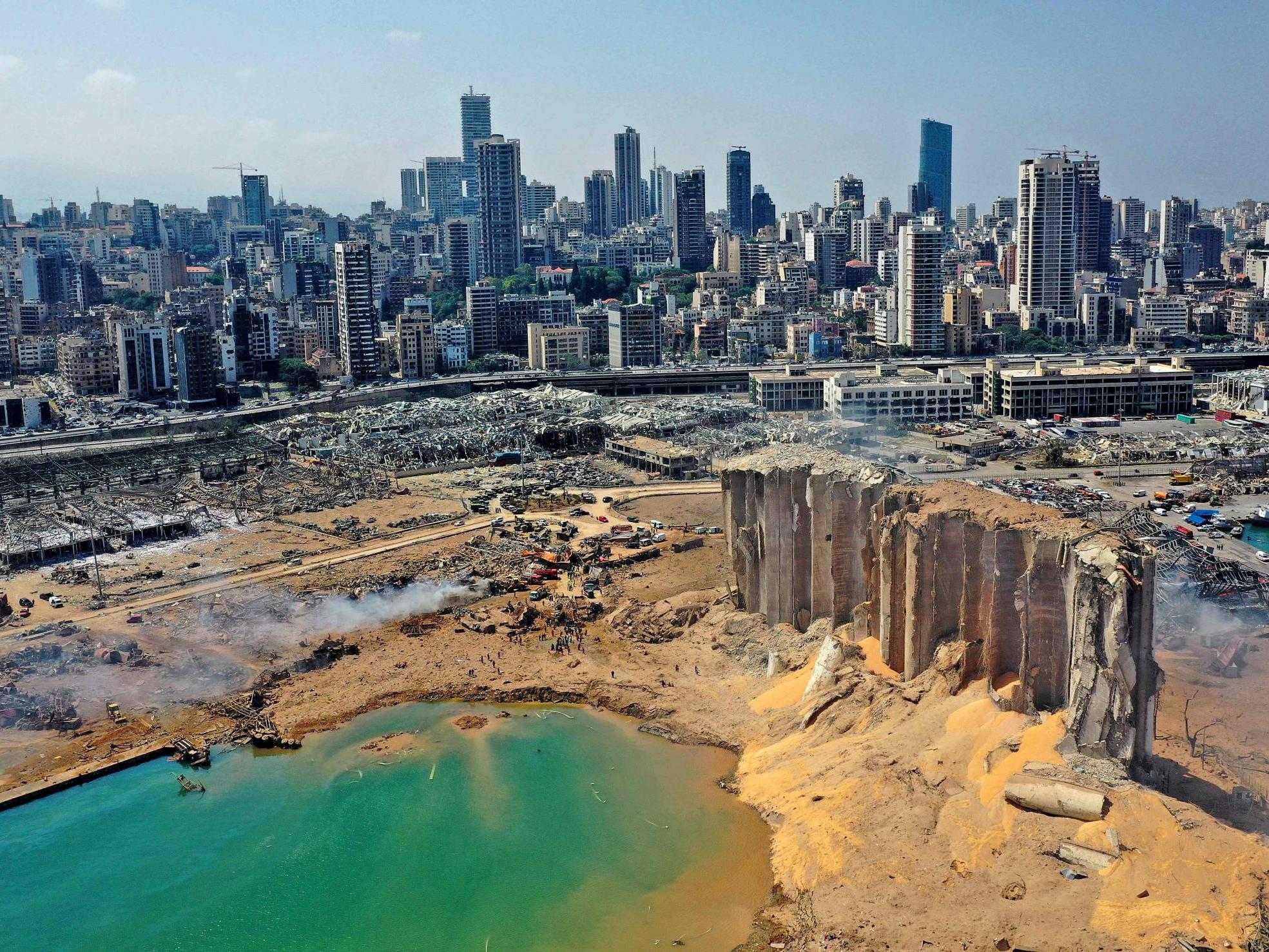A tale of two cities: A once vibrant Beirut now left in tatters
Our Middle East correspondent Bel Trew gives her eyewitness account of how Beirut has been changed irrevocably by the devastating port explosions


Framed by the snarls of exposed metal, a woman wearing a medical mask sits on a chair – her mother’s chair, to be precise – looking out to sea.
Around her, the apartment block which faces Beirut’s ravaged port looks like a broken doll’s house with its front latch off.
You can see a cross-section of bereaved people in the flats quietly collecting books and papers, mementoes and memories.
In front of the building volunteers from all over Lebanon, who know nothing about the inhabitants, are busily cleaning up the debris.
But on the first floor in the right-hand apartment sits the woman, looking out over the smouldering port to the sea.
Her son Ryan, 24, who was newly engaged on Saturday, explains the tragedy that had befallen their family on Tuesday evening.
“We were in the mountains. My grandmother was here,” Ryan says pointing to the chair, which his mother now sits on wrapped in grief.
“My grandmother didn’t even get the chance to tell us there was an explosion.”
The day after Tuesday’s horrific blast and it feels like the day Beirut, forever cherished as the sometime Paris of the Middle East, finally lost that veneer.
Armenia Street, a cobbled wonder of bars and books, restaurants and respites, that trips up to the port area, looks like parts of Gaza did in the 2014 war.
The facades of two buildings began sliding like butter to the floor, sparking panic.

Down the street people try removing the fridge-sized rocks that pin a melted car to the ground. No one bothers with the prefab guard post that was left perched on a truck.
It’s as if a giant had run amok.
The devastation snakes up to neighbouring Ashrafiyah and Geitawi districts, where one of the main hospitals is gutted.
“This now looks good. We’ve been working to clear this areas for hours,” says one hospital administrator, as I look quizzically at an unrecognisable smash of chairs and bricks.
The two words that drift through the devastated neighbourhoods are corruption and pointlessness.
The devastation has no meaning or purpose that can sometimes be distilled out of an attack or war. Experts say it was likely the result of incompetence, mismanagement and a state rotten to its core.
Thousands of tonnes of explosive material – ammonium nitrate – had apparently been left to rot in Lebanon’s busy port for six years and it had caught alight.
One resident tells me that, just as the politicians let the economy go up in smoke, so they set fire to their capital.
Ryan says he blames the government but also himself for not pushing for greater change during the revolution which started in October.
Others in the neighbourhood speak of last year’s uprising as if it were someone else’s remembered dream.
But there is hope amid the devastation.
Volunteers armed with brooms and shovels descend on central Beirut to help with the rescue efforts and clean-up.
Someone has started an Instagram page to find the missing loved ones.
Others have taken to Twitter and Facebook offering homes for people to sleep, using the hashtag #OurHomesAreOpen.
ThawraMap, or Revolution Map, which was originally started last year to identify protest locations, has been sharing its shelter list on different platforms along with a map of 50 or more places to stay, ranging from people with extra beds in their homes to hotels providing up to 40 rooms.
Once again as the ruling elite fails the nation, the people step in.
Join our commenting forum
Join thought-provoking conversations, follow other Independent readers and see their replies
Comments